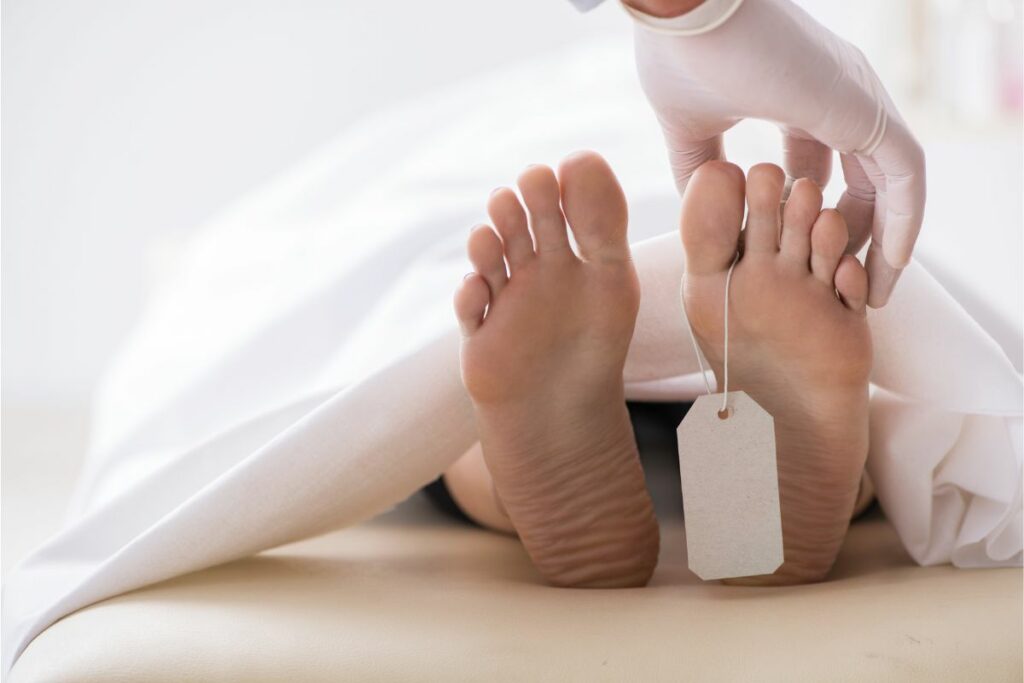Body donation is a process by which someone voluntarily gives their body to science in order to help advance medical research. Though body donation is not new, it is gaining increased attention as medical schools see the potential for body donations from qualified candidates.
In this blog post, we are going to discuss the process of donating your body to science, from beginning to end. We will cover who can donate their body, what happens to the body after donation, the benefits of body donation, and the steps you need to take to donate your body.
By the end of this post, you will have a better understanding of body donation and the benefits it can provide to medical research.
What is Body Donation?
There are many benefits to donating your body to science. Not only does it help advance medical research and training new doctors, but it can also help to provide a source of tissue for transplantation. Body donation is simple and easy, and it can make a difference in the lives of many people. If you are interested in making a difference by donating your body to science, read on for more information on the process.
When you donate your body to science, you become an ambassador for medical research. You are helping to advance the field of medicine by providing bodies that are able to be used in groundbreaking treatments and studies. Plus, by specifying how you would like your body used, you can ensure that your death is as meaningful as possible for those who may benefit from your donation.
Donating your body is an easy process – all you need is some paperwork and consent from those who will be receiving your body. The process of donation is simple and fast, and anyone can do it. By donating your body, you are making a powerful statement about how you feel about life and death. You can make a huge impact not only on those who receive your donated body but also on future generations as well!
What is Body Donation and the Process of Donating Your Body to Science
There is no question that body donation is a generous and life-saving act. By donating your body to science, you are helping to further medical research, advance medical training, and provide closure for families of donors. However, there are some things that you should know before making the decision to donate your body. Below, we will outline the process of donating your body to science and the benefits that you can expect.
First and foremost, what is body donation? Body donation is the process of donating one’s body to science for medical and/or educational purposes. This means that body donation programs will work with you in order to identify any requirements that you may have in order to be a suitable donor. These requirements may include being of a certain age or cause of death. Once these requirements have been met, you are ready to donate your body!
Once you have decided that this is something that you would like to do, there are still some steps that need to be taken in order to make it happen.
First and foremost, make arrangements with a reputable body donation program in order to determine the costs involved (which vary depending on the program).
Next, gather all of your necessary documentation in case anything needsto be sent along with your donated remains (such as death certificates).
Finally, prepare yourself mentally for what will occur after donation by discussing it with loved ones if desired.
Whilebody donation is not for everyone, it can have a profound impact on those who choose it and on those who receive donated remains, such as medical schools.
Who Can Donate Their Body?
Anyone can donate their body for medical research, but there may be certain restrictions depending on the policies of the organization accepting the donation.
Some organizations may also have age restrictions, so it is important to check with the organization you are considering donating to. In some cases, you may need to make arrangements for your donation in advance.
It is also important to discuss your wishes with your family or loved ones to ensure that your donation is carried out according to your wishes.
What are the Conditions to Be Met In Order to Donate Your Body to Science
Be in Good Health
Generally, you must be in good health and free of communicable diseases to be eligible to donate your body for medical research. You also have to be of legal age.
Make the Decision While You are Still Alive
You must also make the decision to donate while you are still alive, since it’s not possible to do so once you are dead. If you wait until it is too late to donate your body, then you could lose the opportunity to help others in the future.
Sign the Necessary Documents
You will also have to sign a legal document donating your body. The most common way to do this is through a specific anatomical program or institution. There are many programs available, so it can take a while to choose which one is right for you. Once you have chosen a program, make sure that all of the requirements have been met before donation can take place. These requirements may include providing evidence of death and signing an agreement outlining the terms and conditions of donation.
What Happens to the Body After Donation?
When someone dies, their body is typically embalmed so that it can be preserved and transported to a research facility. Embalming is a process of preserving the body by injecting it with a fluid that reduces the skin’s ability to contract and causes the muscles and other tissues to swell. This makes the body less susceptible to decay, which is why most bodies are embalmed within 24 hours of death.
Most research facilities require that the body be embalmed in order to store it, but there are some exceptions. Your body may not be embalmed in the event that researchers need to study your organs and tissues as they would if you were still alive. Once the research is complete, the rest of your body will then be frozen and stored until it is needed for another study.
What Are the Benefits of Body Donation?
There are many reasons why people choose to donate their body to science. For some, it is a way to help others even after they have died. By donating their body to medical research, individuals can help further scientific knowledge and potentially save lives. The process of donation is simple and straightforward, and the benefits of donation are numerous.
Here are just a few of the benefits of body donation:
- Gives people the chance to help others even after they die. Body donation can provide closure for families who have lost a loved one, as well as provide hope for those who may be suffering from a terminal illness or condition.
- Can be used to further medical research. Body donations can be used in many different ways, including for studying diseases or injuries, developing new treatments, or investigating how tissues regenerate.
- Allowed to specify what you want done with your body. Unlike other forms of death where organs or tissues are taken without consent or knowledge, with body donation you get the opportunity to specify exactly what you want done with your remains – from donating your organs for transplantation purposes to allowing scientists access to any tissue that interests them for research purposes (including your brain). This means that there is virtually no limit on what kind of research can be conducted using donated bodies!
- Donation is completely free and confidential. There is no cost associated with donating your body to science – it’s completely free and anonymous! Furthermore, unlike funeral expenses which may come as a shock to some families struggling financially during difficult times, donations go directly towards funding medical research projects instead.
- The process is simple and straightforward. The entire donation process takes about two hours from start to finish (excluding transportation time), and everything happens in an isolated room so that privacy is maintained at all times during the procedure.
- Body donation is a selfless act that can help others – even after a person has died. By donating their body to medical research, individuals can help further scientific knowledge and potentially save lives by providing new insight into disease progression or tissue regeneration processes.
Make Sure You Also Understand the Drawbacks of Donating Your Body to Science
Donating your body to science can have several potential drawbacks, such as the possibility of not being able to have a traditional funeral or memorial service, and the potential for your body to be used in ways that you may not have anticipated or agreed to.
Additionally, there is often a lack of control over where your body will be sent and how it will be used, which can be unsettling for some people.
In Short
Body donation is the act of giving one’s body to science after death. It is a selfless act that can provide invaluable benefits to medical research and education. Anyone who meets the age and health requirements can donate their body.
The benefits of body donation include advancing medical research, helping train future doctors, and providing comfort to grieving families. The potential drawbacks of body donation are few and far outweighed by the benefits.
If you are interested in donating your body to science, please contact your local medical school or hospital for more information.


